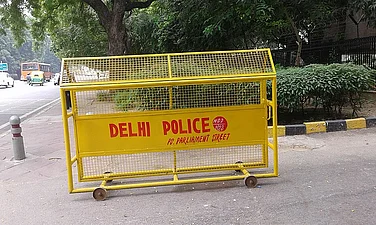India cannot have talks with Pakistan till it continues supporting cross-border terrorism, External Affairs Minister S Jaishankar said on Monday in presence of his German counterpart Annalena Baerbock and noted that Berlin has an understanding of it.
Addressing a joint media briefing after holding wide-ranging talks with Baerbock in New Delhi, Jaishankar said there were fairly extensive discussions both on Afghanistan and Pakistan.
"Regarding Pakistan, I spent some time with the minister outlining the nature of our ties and the challenge of cross-border terrorism, and essentially the fact that we engage Pakistan bilaterally on whatever outstanding issues. The main challenge today is the fact that we cannot have talks while there is terrorism," Jaishankar said.
He said there was an understanding from the German side in this regard.
During a joint press conference with her Pakistani counterpart Bilawal Bhutto Zardari in Germany in October, Baerbock had talked about a possible role by the UN to resolve the Kashmir issue, evoking a sharp reaction from New Delhi.
Days later, German Ambassador to India Philipp Ackermann said Berlin has not changed its position on Kashmir and the "bilateral path" is the way forward to resolve the vexed issue.
Ahead of her visit to India, Baerbock, in a media interview, said she believes Kashmir is a "bilateral" dispute.
"We had fairly extensive discussions both on Afghanistan and Pakistan. A lot of it was on Afghanistan, about our respective assessment of how the situation there is," Jaishankar said.
He also noted that Germany shares the contents of the UN Security Council Resolution 2593 on Afghanistan which largely expressed the international community's view.
The UNSC resolution, adopted on August 30 last year under India's presidency of the global body, demanded that Afghan territory should not be used to threaten or attack any country or to shelter and train terrorists and plan or finance terrorist attacks.
Jaishankar said both sides deliberated on the humanitarian situation in Afghanistan and what can be done to improve it.
Besides Afghanistan and Pakistan, a number of other issues of international importance also figured in the talks, he said.
"Today, we have really spent the morning exchanging views on the major international issues of the day, apart from our bilateral relationship," he said.
"This included the conflict in Ukraine, the situation in the Indo-Pacific, developments pertaining to Afghanistan and Pakistan to some degree, and Iran and Syria. And really, each one of us brought to this set of issues our perspectives and I found it very useful, and very rewarding to listen to your (Baerbock) perspectives on many matters," Jaishankar said.
The German foreign minister arrived here Monday morning on a two-day visit to discuss ways to further expand bilateral cooperation in a variety of areas including energy, trade, defence, security and climate change.


























